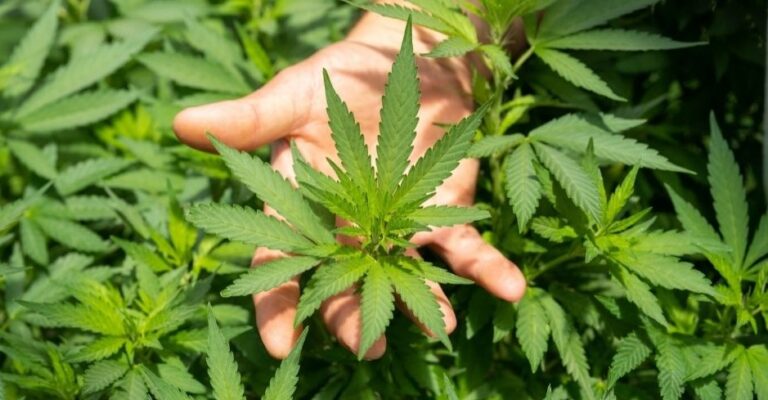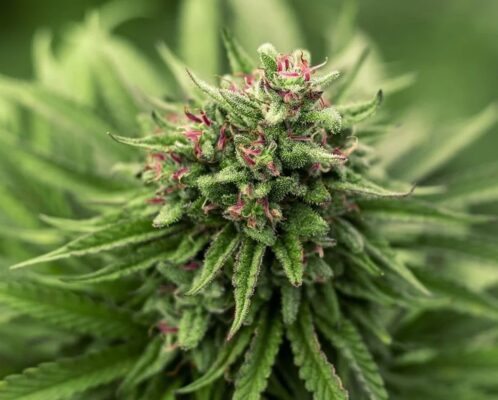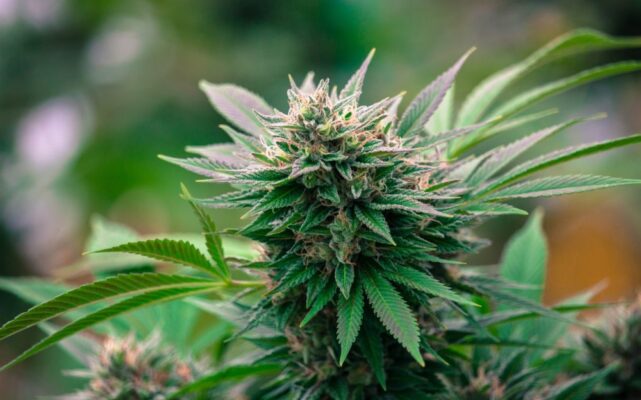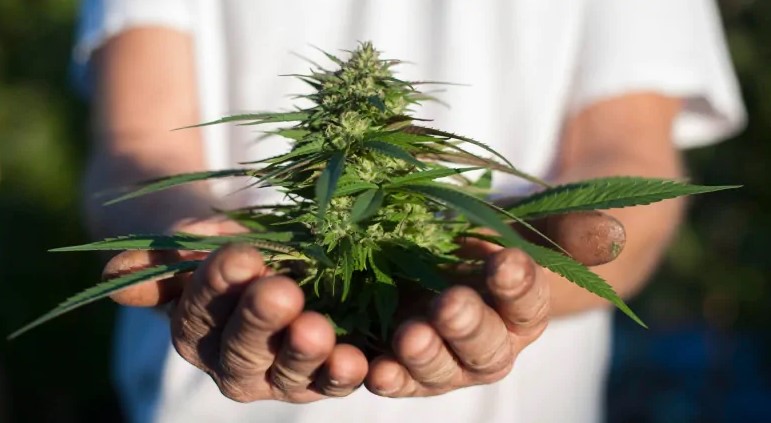Uncategorized
Organic Marijuana: What Makes it Special?
Organic cannabis is by far the most popular product on the market today. Whether you’re searching for high-quality flower for personal use, sale, or production, organic marijuana is a lucrative commodity in this industry. Wish to buy really organic marijuana? Buy Heat Wave and you won’t be disappointed.
What Does Organic Weed Mean?
Cannabis that is grown organically is referred to as organic weed. The plant is cultivated in a way that mimics how it would grow naturally.
Cannabis that is grown naturally without the use of pesticides or chemicals is known as organic weed. There are no pesticides or fertilizers used to speed up growth or production. Natural resources, soil, and sunshine are required for organically produced cannabis to thrive.
Most farmers today prioritize higher production and bigger yields as cannabis becomes more popular. Cannabis cultivation has evolved into a scientific study with the hydroponic movement, and chemical nutrients and artificial lighting are both utilized to replicate and speed up a plant’s life cycle in order to create larger, more plentiful flowers and buds. This is in contrast to organic marijuana farming.
Organic Marijuana Benefits

Richer Microbiome in Organic Cannabis Grow Ops
Better microbes are found in organic cannabis soil mixes. This is the plant’s environment’s microbiome, which contributes to optimum development.
Cannabis seeds are being germinated in soil by a few cultivators.
Consider organic cannabis soil mixes as complex ecosystems. They include fungi, bacteria, and a variety of other microscopic organisms. Of course, nematode worms are included in this complexity. You can’t achieve this intricacy any other way.
Soil that is rich in clays makes for excellent growing conditions for cannabis plants. It aids in the retention of nitrogen and water, inhibits root diseases, and promotes plant development. As a result, many organic cannabis farmers prefer to manufacture their own “super-soil.”
Organic Cannabis is Safer for Consumption
Consumers are more informed about the cannabis industry’s unsavory cultivation methods, resulting in improved decision-making. While growing organic marijuana at home isn’t difficult, big-scale producers must undertake greater risk. Some purists believe that letting plants develop naturally is best, regardless of whether organic cannabis growers use natural minerals and pesticides.
The primary distinction between organic soil-grown cannabis and conventional cannabis is that the grower does not use chemical fertilizers or pesticides. While these help plants to thrive and flower, natural choices are available, and they pose a lower risk.
Organic nutrients for cannabis are actually very inexpensive. Because they’re manufactured by composting organic waste, they’re sometimes free. This entails putting organic food in a composter and then adding it to your soil.

Organic Marijuana is More Potent
Organic cannabis plants thrive in a natural environment, with adequate light and the proper nutrients. These plants have specialized and extensive demands to encourage their development, and if you meet those needs, the results are stunning.
Conventional cannabis nutrient systems, on the other hand, provide plants with just what they require to live and develop. The required macronutrients (nitrogen, phosphorus, potassium, calcium, magnesium) and micronutrients (boron, copper, zinc, iron, molybdenum) are generally included in these cannabis nutrient mixes.
When utilizing organic nutrients, trace elements such as potassium, arginine, iron, manganese, molybdenum and zinc are introduced. While they aren’t critical, sodium (a nutrient that can help plants grow), cobalt (a mineral that promotes plant growth), chlorine (a chemical used in swimming pools and hot tubs) and nickel (an essential micronutrient) are all nutrients that might be present but aren’t commonly found in commercial fertilizers.
Better Yields in Organic Cannabis Grows
Some commercial growers are concerned that organic cannabis cultivation might reduce their profits, but the situation is actually the opposite. It’s feasible to improve yields by as much as 100 percent through traditional development if all factors are properly controlled.
However, if the micro-environment is incorrect, the yield can be far lower than non-organically grown marijuana. However, now that commercial organic fertilizers for cannabis cultivation are available, it’s simpler. Now cultivators have a greater understanding of how to apply these fertilizers.
More Flavorful, Aromatic Buds for Organically Grown Cannabis
When you grow cannabis organically, the microenvironment is superior. This ensures that your plants are producing more of the cannabinoids responsible for making flower more flavorful and fragrant. Higher levels of terpenoids, flavonoids, and other cannabinoids will be present as a result of these methods of cultivation.
Terpenes and terpenoids are aromatic chemicals found in plants that give them their fragrance. Cannabis contains a lot of these compounds, each with its own unique aroma.
Cannabis contains many of the same compounds as fruits and vegetables, including flavonoids. These chemicals, however, have greater antioxidant benefits than those found in other foods.
Organically Grown Marijuana is Better for the Environment
The most environmentally responsible approach to cultivate cannabis is to utilize natural light from the outside. With this in mind, energy usage while growing inside is the most challenging aspect of doing so. However, pesticide runoff is another concern.
Cannabis cultivated organically has a smaller carbon footprint. It’s especially helpful for water resources where cannabis is harvested commercially in regions where people are allowed to grow it.

Synthetic vs. Organic Fertilizers for Cannabis
Modern monoculture production is increasingly common among cannabis growers. This necessitates sterile conditions and the manipulation of variables in order to produce the most amount of cannabis possible. However, this usually entails mineral solutions that have been tested and guaranteed to contain precise NPK ratios and a narrow pH range. As a result, everything stays efficient in order to allow for fantastic marijuana development.
However, soil microbiology is utilized to grow organic marijuana. Growers may feed their plants’ roots with ideal soil mixtures naturally, much like nature does. While growing cannabis organically the first time may be difficult, it’s a gratifying experience to create cannabis flower that is free of harmful chemicals.
Bottled fertilizers aren’t always produced. Organic fertilizers, on the other hand, are frequently diluted. Furthermore, combining all of the organic cannabis nutrients you require in a single bottle is difficult due to chemistry and plant physiology limitations.
Organic Cannabis Nutrients to Consider
You may make your own fertilizer to grow organic cannabis. These are the primary organic cannabis macronutrients that aid in plant development:
- Nitrogen (N)
- Phosphorus (P)
- Potassium (K)
These macronutrients can be found in a variety of natural places. Worm castings, crustaceous meal, bat guano, and chicken dung are all great sources of nitrogen. Even human urine is an option as long as it’s diluted with a ratio of 10:1 water to urine. This helps to minimize the ammonia levels while preventing root burn.
You may also use boiled banana peels and moistened soil for organic phosphorus acquisition. This mixture must ferment a little to contribute some P to your soil mix. You may also utilize bone meal, rock dust, and chicken dung to provide phosphorus.
Potassium is readily available in nature as well. Banana peel, bat guano, kelp, wood ash, compost, siliceous rocks, and fish meal can all be used to deliver potassium to cannabis plants.
Calcium and magnesium are also required. These are important at the beginning of bloom, when your plants will benefit from macronutrients if you give them enough and during bloom, when they will require more micronutrients.


